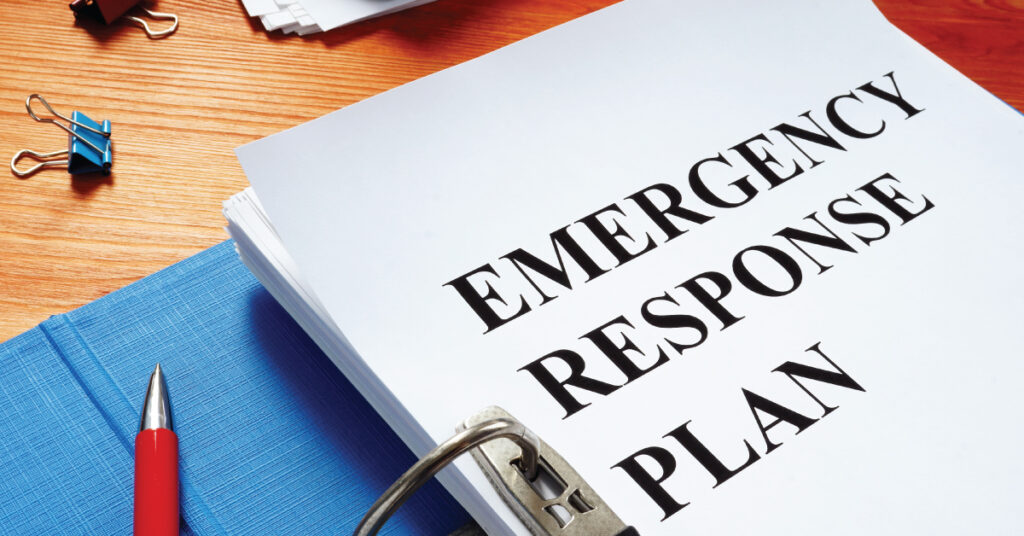
Hurricane season lasts from June 1 – November 30 in the Atlantic. If your business operates in a hurricane-prone region, it’s crucial to have a plan of action. This In-Case-of-Emergency plan provides guidance on business continuity, communication, and recovery in the event of a disaster.
Does your business have a plan in place? If so, now is the time to review it – and if not, now is the time to create one.
What do we mean by “in case of emergency plan”?
By “In-Case-of-Emergency plan,” we mean a written, thorough plan to guide your business before, during, and after an emergency such as a hurricane. Your plan will provide detailed answers to one important question: How will you protect your employees, your customers or clients, and property?
A comprehensive business continuity and recovery plan will help your business identify and address needs and any weaknesses in disaster preparedness. With a detailed plan, your business can hopefully resume operations as soon as possible following the event.
Why your business needs a plan
As America’s first insurer, Benjamin Franklin, once said, “If you fail to plan, you are planning to fail.”
Every business, no matter the size, should have a written plan for emergencies. Even if a disaster seems unlikely, it’s important to consider the steps your business will take before, during, and after. This plan will help protect your business and accelerate your recovery process; plus, given the stress of an event such as a hurricane, you’ll be thankful your organization spent the mental energy on creating this plan ahead of time!
“75% of businesses without continuity planning fail within three years of a disaster,” according to ready.gov.
This proactive measure will help guide your business through a difficult time and provide peace of mind.
What your plan should include
Your plan should be thorough and answer questions such as:
- How will business decisions be communicated amid disaster?
- What channels will you use to communicate with employees? (For more on this, read our blog: Effectively Communicate with Your Employees Before, During & After a Crisis)
- Who will handle communicating to customers, clients, or community members?
- How will IT infrastructure and secure business information be protected?
- What does our insurance policy cover during a disaster?
- Understand what coverage your business has. For help, contact your independent insurance agent to ensure you have the protection you need in the event of a hurricane or other emergency.
- Is your business’s property ready to withstand storm conditions? What needs to be done to protect the structure? Does anything on the property pose a safety concern, and if so, how will you handle this?
- Where will your business go if forced to temporarily relocate?
Before a hurricane or other emergency event, brainstorm with trusted colleagues. Consider the answers to these questions and other potential problems your business could face amid disaster. Delegate tasks throughout the plan, too.
For more information on hurricane preparedness, explore our hurricane safety blogs, such as:
When to prepare your plan
Creating and reviewing your business continuity plans should be an ongoing process.
If your business does not have a formal, written disaster recovery plan, now is the time to prepare one! If you already have a written plan, take the time to review the plan regularly.
Share your in-case-of-emergency plan with your employees. If possible, the Insurance Information Institute suggests leading drills for your business to “assess and improve response” prior to disaster.
Looking for new insurance for your business?
Use our Find an Agent tool to locate an independent insurance agent near you!
This blog was originally published on August 21, 2023. It was last updated on July 7, 2025.



